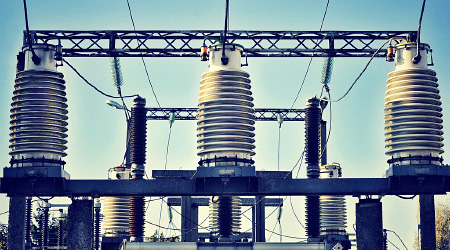Reducing Energy Costs

You don't have to buy a lot of expensive gadgets or live without luxury to conserve energy. Environmentally friendly activity is just a matter of habit. By using only what you need, when you need it, you can help the environment and save on your power bill at the same time.
Being conscientious
Ever fall asleep with the TV on? Ever wake up and realize you left the computer on all night after checking your email the night before? Thinking consciously about the resources you use can be an important first step in saving power and money.
Most home electronics and appliances have energy-saving features. Televisions have timers that can be set to shut off after a few hours. If you like to fall asleep with the TV on, use the timer and don't waste electricity all night. All modern computers come with power saving functions, but these have to be set by the individual user to be effective. Make sure you understand how these features work and set them up to go along with your own habits.
Home theater sound systems allow networking of stereo, TV, DVD and even computer accessories, often through the same remote control. The downside of this convenience is that even the unused items are often switched on at all times. Be sure to turn off the CD player when you're watching a movie, and power down the whole system when you're going out.
Light up your life the smart way
Make sure your lights have energy-efficient compact fluorescent bulbs installed, which will have a positive impact on the environment and your power bill. These bulbs are more expensive initially but last much longer than older, less efficient bulbs, saving you the cost and time of frequent replacements.
Reconsidering how much light is needed, and where and when you need it, can also make a big difference in power use. Turn the lights off when you leave the room or home and only use a minimum of low watt lights overnight. Better yet, look for motion activated night lights or low output LED lights for nighttime navigation.
Batteries are piling up in landfills from coast to coast. For your emergency lighting needs, consider a shake-up flashlight, which provides LED light through a magnetic induction process powered by shaking the light for a few seconds before each use - no batteries required! Good old-fashioned candles can be a nice way to set the mood on a stormy night when the power goes out, but be careful and make sure they won't set off your smoke alarms, which run on batteries and work even during a blackout!
Keeping cool and keeping warm
In the summer and winter, keep heat and air at reasonable temperatures. Close doors to unused rooms and leave the vents shut to increase air flow to busier parts of the home. Ceiling fans can be used year round to help air circulation.
Take a few minutes to set up a programmable thermostat that will shut off the air conditioning when you're gone during the day.
As the seasons change, keep an eye on the temperature. Take advantage of mild days to turn off the air conditioning and open up the windows, even if you can only do it for the morning. A little effort goes a long way!
While there are expensive energy conserving gizmos on the market, cutting electricity cost isn't about making a special shopping trip or ordering products from TV. A little extra attention to everyday habits is all you need!
Elsewhere on StockMonkeys.com







